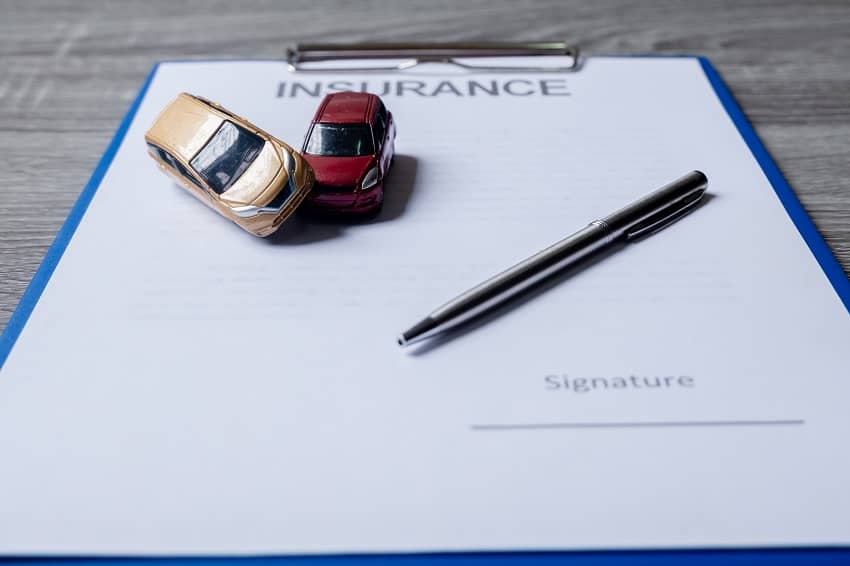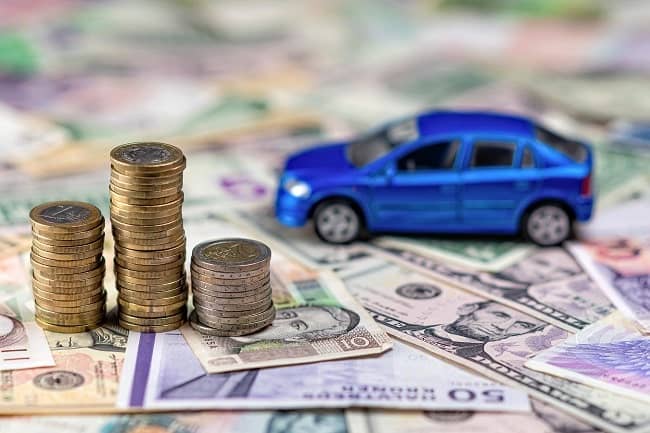Yes, some car insurance policies cover repairs; however, this depends on the type of coverage and the cause of the damage. Comprehensive coverage typically includes repairs for damages caused by weather, theft, or vandalism.
Collision coverage may cover repairs for damages caused by accidents, but deductibles and coverage limits apply. It’s important to review your insurance policy to know what repairs are covered and what costs you may have to pay out of pocket.
Additionally, some insurers may have preferred repair shops that offer discounted rates to their policyholders. Proper insurance coverage can help protect you financially in case of unexpected repairs, so it’s important to choose the right policy for your needs.
Table of Contents
Understanding Comprehensive Coverage For Car Repairs
Car accidents can wreak havoc on your finances and often involve expensive vehicle repairs. It can be stressful to deal with the aftermath of an accident and its related expenses. Thankfully, car insurance can alleviate some of the financial burden associated with repairing your car.
One type of coverage that can be particularly beneficial is comprehensive coverage. Here’s what you need to know:
Explanation Of Comprehensive Coverage
Comprehensive coverage is an optional type of car insurance that pays for damage to your car, not caused by an accident. It covers a range of scenarios, including theft, vandalism, natural disasters, and animal damage. Comprehensive coverage can also cover the cost of a rental car while your vehicle is undergoing repairs.
What Car Repairs Are Covered Under Comprehensive Coverage
Comprehensive coverage covers a wide range of repairs. The following are some of the examples:
- Damage from natural disasters like earthquakes, hailstorms, and floods
- Damage caused by falling objects such as trees or rocks
- Damage due to theft or vandalism
- Damage due to animal collisions
It’s important to note that mechanical breakdowns are not covered under comprehensive coverage. However, if your car is damaged in an accident and the cause of the accident wasn’t your fault, your liability insurance will cover the damages.
How To Determine If Your Car Insurance Policy Includes Comprehensive Coverage
To determine if your car insurance policy includes comprehensive coverage, you can find the “declarations page” of your policy. It’s usually found at the beginning of the policy document. Here, you’ll see a breakdown of the coverage types included in your policy.
Additionally, you can call your car insurance company to confirm your coverage types and limits.
Comprehensive coverage can be a valuable addition to your car insurance policy as it covers repairs to your car in a variety of scenarios. It’s an optional coverage type, but one that’s worth considering. So, check your policy to see if you have it, and if not, consider adding comprehensive coverage to your car insurance policy.
Understanding Collision Coverage For Car Repairs
You might have wondered if your car insurance provides coverage for repairs. Collision coverage is an optional feature of most car insurance policies that provides basic protection for your vehicle. It is important to understand what is covered under this policy to determine if you need to purchase it as an additional coverage.
Here are some key things you should know about collision coverage:
Explanation Of Collision Coverage
Collision coverage, as the name implies, is a type of auto insurance coverage that pays for the damages that occur to your car if it is involved in an accident with another vehicle or object. It does not, however, cover the damages due to theft or vandalism.
What Car Repairs Are Covered Under Collision Coverage
Collision coverage helps to cover the costs of repairs or replacement of your car in the event of a collision. The repairs can involve anything from fixing a minor dent to replacing an entire door or panel. If the damage to your car is severe enough, the insurance company may even consider it to be a total loss and pay you the full value of your car.
How To Determine If Your Car Insurance Policy Includes Collision Coverage
You can ask your insurance agent to confirm if your policy has a collision coverage option. In some cases, it may be mandatory if you have a car loan or a lease. Most insurance providers offer collision coverage as an optional add-on to your policy.
Ensure you understand the coverage limits and deductibles of your policy to know the amount you will pay out-of-pocket in case of an accident.
Collision coverage is an essential coverage option for car owners. It offers peace of mind by protecting your vehicle from the cost of collision repairs. Understanding what is covered and knowing the coverage limits will help you make informed decisions about car insurance.
Explore Additional Coverage Options For Car Repairs
Apart from having comprehensive car insurance, there are options that allow you to cover various expenses that might not be covered under typical car insurance policies. Here, we discuss some additional coverage options available that can give you extra protection and peace of mind in case of car repairs.
Explanation Of Additional Coverage Options
Numerous additional coverage options are available that can help you reduce the financial burden of car breakdowns or accidents. These include:
- Roadside assistance: Breaking down in the middle of nowhere can be frustrating, but roadside assistance can give you peace of mind. It covers battery jump-starting, fuel delivery, and towing when your car isn’t starting or becomes stuck on the road.
- Mechanical breakdown: This option provides coverage for mechanical or electrical breakdowns in most of the car components. It includes everything from gps systems to engines, and the coverage level varies between providers.
- Rental car: The rental car coverage option can cover the cost of renting a car when your car is getting repaired due to an accident. It can be an excellent option for those who rely on their car for their daily commutes.
- Glass coverage: The glass coverage option can repair or replace damaged windshields, windows, and mirrors if they’re not covered under comprehensive car coverage.
Different Types Of Coverage And Protection
There are a few different types of additional coverage options available that can give you more protection and comprehensive coverage:
- Extended warranty: An extended warranty provides more coverage beyond the standard manufacturer warranty for a specified time frame, including major components and systems that aren’t covered under typical warranties.
- Guaranteed asset protection (gap): Gap coverage can pay the difference between the value of the vehicle and the amount you owe during critical mishaps like damage or theft. It guarantees that you’re not liable to pay the excess amount on your car loans if it’s declared a total loss after an accident.
- Personal injury protection (pip): This is a kind of no-fault coverage that reimburses the driver and their passengers for medical expenses and other non-medical costs related to a car accident.
What Car Repairs Are Covered Under These Additional Coverage Options
The repairs covered under these additional coverage options vary depending on the terms and conditions of your insurer. For instance:
- Roadside assistance coverage repairs typically include gas delivery, jumpstarting, tire change, and towing to the nearest repair shop if the car cannot be fixed on the spot.
- With mechanical breakdown coverage, most of your car components are covered, but the reimbursement amount may vary due to the age and mileage of your car, among other factors.
- Rental car coverage covers expenses for renting a car until your car is repaired and back in action.
- Glass coverage can repair or replace damaged mirrors, windshields, and windows, saving you significant repair costs.
Additional coverage options can help reduce the financial burden that you might face with standard car insurance policies. It’s always advisable to consider these coverage options when buying a car insurance policy to ensure that you have complete protection and peace of mind.
How To File A Claim For Car Repairs
If you’ve been in a car accident or your vehicle has been damaged, you’re probably wondering how to file a claim for car repairs. This process can be a bit overwhelming, but with the right information, you can make it smoother and stress-free.
In this guide, we’ll explain the claims process, what information you’ll need to file a claim, and some tips for making the process as easy as possible.
Explanation Of The Claims Process
The process of filing a claim for car repairs typically includes the following steps:
- Contact your insurance company: You need to let your insurance provider know that you’ve been in an accident or your vehicle has been damaged. They will ask for information about the incident, including where and when it happened, who was involved, and the extent of the damages.
- Investigation and evaluation: Your insurance company will investigate the incident, evaluate the damages, and determine the extent of your coverage.
- Estimate and approval: After the damages have been evaluated, your insurance company will provide you with an estimate of the repairs that need to be done. You will have to approve the estimate before the repairs can begin.
- Repair: Once you approve the estimate, the repair work can begin. You may choose your own repair shop or select one from a list of preferred shops provided by your insurance provider.
- Payment: After the repairs are complete, the repair shop will bill your insurance company, and you may have to pay a deductible before your insurance company covers the remaining cost of the repairs.
Information Needed To File A Claim
When filing a claim for car repairs, you will need to provide your insurance company with the following information:
- Your policy number
- Date and time of the incident
- Location of the incident
- Description of the damages
- Names of any involved parties, including witnesses
- If you filed a police report, provide a copy of it
- Contact information for any involved parties or witnesses
Tips For A Smooth Claims Process
Here are some tips to make the claims process smoother:
- Contact your insurance company as soon as possible after an incident.
- Keep calm and stay polite when dealing with your insurance company. It will make the process smoother and faster.
- Keep all documents related to the incident in a safe place.
- Take photos of the damages and the location of the incident.
- Keep a record of all conversations and interactions with your insurance company.
- Be honest and accurate when providing information to your insurance company.
Filing a claim for car repairs can be stressful, but with the right information, it doesn’t have to be. By following these steps and tips, you can ensure a smoother and stress-free process. If you have any questions or concerns, don’t hesitate to contact your insurance company for assistance.
Common Situations Involving Car Repairs: Understanding Your Coverage
Cars can experience various types of damage, from accidents to mechanical malfunctions. Understanding your car insurance policy is crucial when dealing with these kinds of situations, as your policy may or may not cover the repair costs. In this guide, we will discuss the different types of damage that require repair and whether or not they are covered by your car insurance policy.
Coverage For Repairs After An Accident
Car accidents are unpredictable and can cause extensive damage to your car. Fortunately, most car insurance policies provide coverage for repairs after an accident, as long as the damage is not intentionally caused. Below are the key points about coverage for repairs after an accident:
- Comprehensive coverage policies typically cover the cost of repairs if your car is damaged in an accident.
- Collision coverage policies cover damages caused by accidents where you are at fault.
- Your car insurance policy usually provides coverage for the cost of repairs up to the actual cash value of your car, minus the deductible.
Coverage For Damages Caused By Natural Disasters Or Weather Events
Natural disasters such as tornadoes, floods, and hurricanes can cause severe damage to your car. In some cases, your car insurance policy may cover damages caused by these natural disasters. Here are some key points to remember:
- Comprehensive coverage policies may cover damages caused by natural disasters or weather-related events.
- However, it is important to check your policy to see which specific events are covered.
- In most cases, you will need to pay a deductible before your insurance kicks in.
Coverage For Repairs Due To Theft Or Vandalism
If your car is damaged due to theft or vandalism, your car insurance policy may cover the cost of repairs. Here are some key points to remember:
- Comprehensive coverage policies usually cover theft and vandalism damages.
- However, be sure to check your policy for specific coverage limits and deductibles.
Coverage For Mechanical Breakdowns
Car mechanics are not infallible, and sometimes things can go wrong that are out of your control. If your car breaks down due to mechanical issues, your car insurance policy may not cover the cost of repairs. Here are some key points:
- Most car insurance policies do not cover mechanical breakdowns unless you have specific coverage.
- You may be able to purchase mechanical breakdown coverage as an add-on to your policy.
- Always check your policy for exclusions and exceptions before assuming any type of coverage.
Understanding the type of coverage you have can help give you peace of mind when the unexpected happens to your car! Be sure to do your research and ask your insurance provider any questions you may have about your policy.
Frequently Asked Questions Of Does Car Insurance Cover Repairs
Does Car Insurance Cover Repairs For Regular Wear And Tear Or Mechanical Breakdowns?
No, car insurance generally doesn’t cover repairs due to regular wear and tear or mechanical breakdowns. However, some insurance policies may offer riders or endorsements to cover these types of repairs.
Does Car Insurance Cover Repairs If You Were At Fault In An Accident?
Yes, if you were at fault in an accident, your car insurance will typically cover the cost of repairs to your own vehicle, as well as any damage you caused to other vehicles or property.
Will Car Insurance Cover Repairs If Someone Else Caused The Accident?
If someone else caused the accident, their insurance should cover the cost of repairs to your vehicle. If the other driver is uninsured or underinsured, your own insurance may cover the cost of repairs, depending on your policy.
Does Car Insurance Cover Repairs For Cosmetic Damage?
Car insurance generally doesn’t cover repairs for cosmetic damage, such as dents or scratches, unless they result from a covered event, such as a collision. However, some insurance policies offer riders or endorsements to cover cosmetic damage.
Does Car Insurance Cover Repairs For Stolen Cars?
If your car is stolen, your car insurance policy may cover the cost of repairs if the vehicle is recovered with damage. If the car is not recovered, your insurance may cover the actual cash value of the car, minus your deductible.
Conclusion
Rest assured that car insurance can provide peace of mind when it comes to unexpected car repair costs. Knowing what your policy covers and how much coverage you have is vital to ensuring that you are not stuck with a hefty bill after an accident.
While many policies offer different levels of coverage, it is always wise to check with your insurer to understand the specific terms and conditions of your policy. In any case, it’s always best to be prepared for the unexpected by ensuring that you have the right amount of coverage for repair costs in case of an accident or damage to your car.
Don’t wait until it’s too late; review your car insurance policy today to see if you’re covered for car repairs and stay safe on the road.





